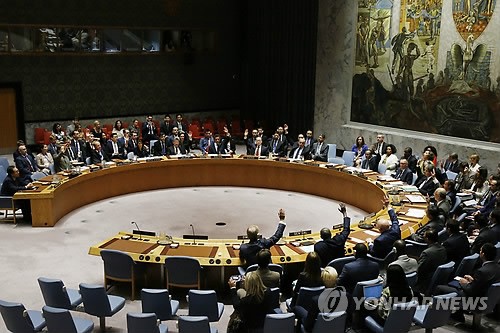
The government said that the international community's approval of the toughest sanctions ever reflects its united front in dealing with Pyongyang's nuclear and missile programs, source from the Yonhap.
"(We think) the move is expected to positively affect North Korea's nuclear issue," a ministry official said.
The United Nations Security Council (UNSC) on Monday unanimously adopted the sanctions resolution over North Korea's sixth nuke test that includes a freeze on its imports of crude oil at current levels of 4 million barrels a year and a cap on imports of refined petroleum products at 2 million barrels annually.
They also included a ban on exports of North Korean textiles, a key source of revenue for the regime and restrictions on the use of North Korean workers overseas.
The official said that the sanctions are likely to deal a painful blow to North Korea as the scope of the penalties was expanded, but he declined to comment on specifics.
He said that it is not proper to gauge the possible impacts of the sanctions on the now-shuttered joint industrial complex in North Korea's border city of Kaesong. About 58 percent of local firms there did textile-related businesses.
"The resumption of the complex would be possible after progress over the resolution of North Korea's nuclear issue. So it is not appropriate to gauge the sanctions' effects (on the factory zone at this stage)," the official said.
In February 2016, Seoul shut down the Kaesong Industrial Complex in response to North Korea's fourth nuclear test and long-range rocket launch.
Opened in 2004, the factory zone had housed 124 South Korean firms hiring more than 54,000 North Korean workers to produce labor-intensive goods such as clothes and utensils.
Previously, local firms moved raw and auxiliary materials to the factory zone where goods were produced with North Korean labor. The finished products were transported back to the South. Such inter-Korean trade was not considered exports or imports.
"A ban on exports of North Korean textiles could indicate that no country could be involved in even toll processing with North Korea," said Lim Eul-chul, a professor at the Institute for Far East Studies at Kyungnam University. "Situations surrounding the Kaesong complex are getting tricky."
























